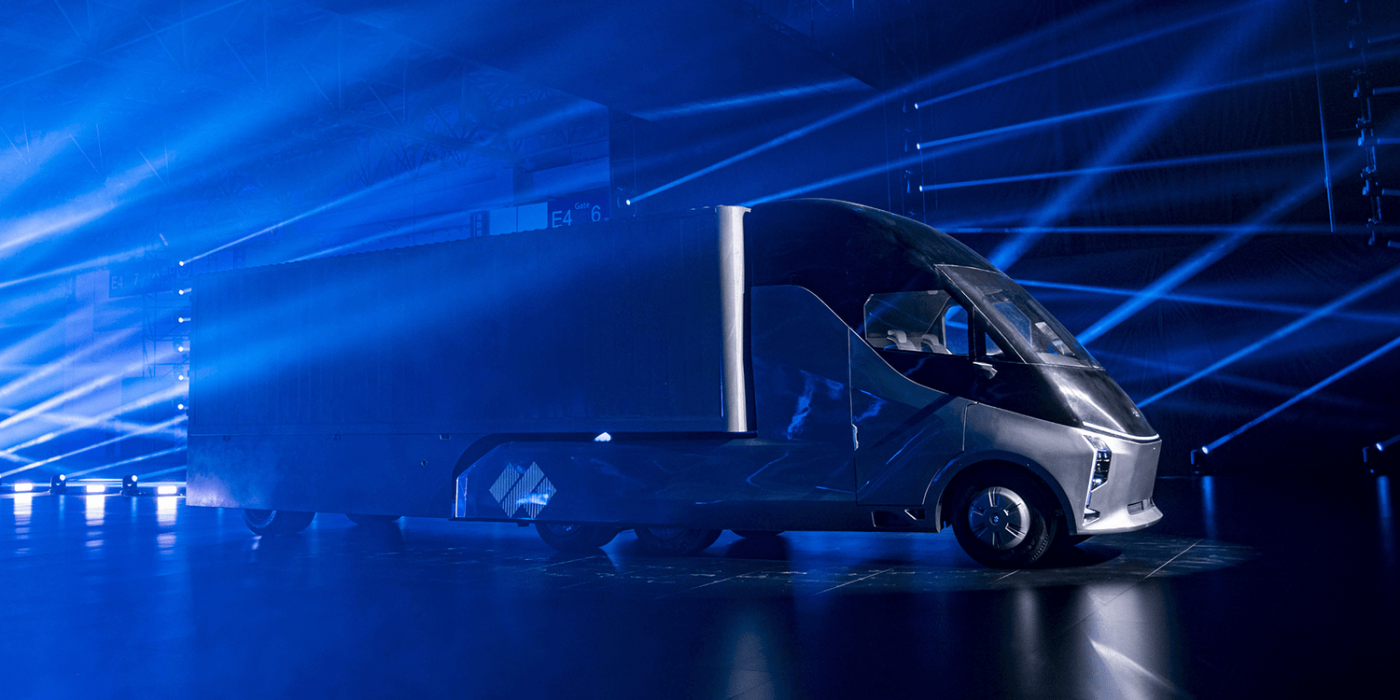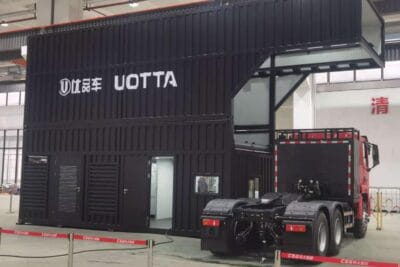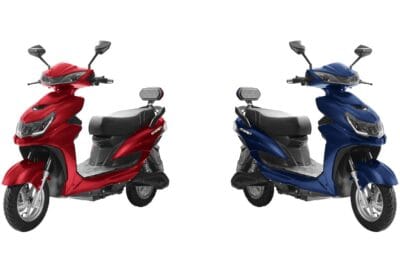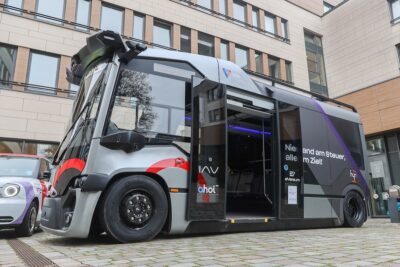Baidu to enter heavy goods transport with subsidiary ‘DeepWay’
The Chinese internet giant Baidu is setting its sights on the market for heavy goods vehicles through its subsidiary DeepWay. For 2023, the company is holding out the prospect of an electric “robot truck”, for which some key data has already been announced, such as a battery change system that is supposed to provide fresh batteries in six minutes.
Baidu says it has been working since 2013 on a self-driving technology called Apollo, which sees vehicles more or less as computers on four (or more) wheels. Baidu has been active in the car, robotaxi and minibus segments for some time. There is also an electric car joint venture founded in March this year with Geely, in which Baidu holds a majority stake and which plans to produce its first model as early as next spring. Now, the AI and connectivity strengths of the major corporation are to be extended to the market for heavy trucks for the first time.
To this end, Baidu founded the DeepWay joint venture last year together with Lionbridge, a vehicle and logistics financier active in China. According to a statement by Baidu, the core business of the new joint venture is the development and production of smart e-heavy trucks, but also the creation of smart driving solutions for the truck freight market. Wan Jun, the chairman and CEO of joint venture partner Lionbridge, has been appointed CEO of the joint venture.
As a first result of the collaboration, the partners have now unveiled the Xingtu, a heavy-duty truck packed with computer technology and featuring an aerodynamic design, which is scheduled for market launch in 2023. Initially, it is planned to equip the vehicle with Level 3 self-driving technology, they say. This will allow the Xingtu to be used on certain “high-speed freight routes”. Between 2024 and 2026, DeepWay then wants to expand the autonomous driving capabilities of the “robot truck” to Level 4, but continue to send the vehicles into service on said high-speed routes.
The background to this is that Lionbridge has been working on technologies for highway logistics and transport based on Baidu’s Apollo software platform since 2018. Already at that time, both sides agreed to cooperate in the areas of data, technology improvement and joint development of autonomous trucks. “Without intersections and pedestrians, and with clear signage, the highway is one of the best scenarios for the application of autonomous driving,” expressed the general manager of Baidu’s Smart Driving Group, Shang Guobin, back in 2018. “Lionbridge Group has a lot of data and operational experience with commercial vehicles on highways, which is essential for the commercialisation of autonomous driving trucks. It is an ideal partner for Baidu.”
Meanwhile, DeepWay is not yet providing full details on the Xingtu’s technical spec sheet. However, the joint venture does provide some initial key data: the Xingtu is supposed to have a “specially developed 450-kWh battery pack” on board and offer a range of up to 300 kilometres when fully loaded with a total weight of 49 tonnes. The developers give the wind resistance coefficient as 0.35. Coincidence or not, the Chinese electric truck is said to be a touch more streamlined than the Tesla Semi with its wind resistance coefficient of 0.36.
The Xingtu is to be charged via quick charging “in just one hour”, DeepWay informs. Alternatively, the batteries of the heavyweight can be replaced in just six minutes. This is an approach that also has supporters in Germany.
But the heavy-duty truck is supposed to score points above all with its intelligent capabilities. According to the company, it will be equipped with a Highway Intelligence System (HIS) developed by DeepWay and a computing power of more than 500 TOPS (“Tera Operations Per Second”). The system will continuously analyse information from ten onboard cameras, five radars and three infrared detectors. With the help of advanced algorithms, Xingtu can thus “achieve continuous autonomous driving – from perception to planning – and ultra-long-range recognition of more than one kilometre within 100 milliseconds”, DeepWay boasts.
In the driver’s cabin, meanwhile, comfort and intelligent instruments are making their way in. DeepWay cites an intelligent voice assistant, a touchscreen infotainment system and comfortable seats and beds as examples. Basically, the equipment concept pursues a separation of driving, working and living areas, it says.
“This new generation of vehicles is by no means just a modified truck – it is a robot truck,” expresses Yunpeng Wang, vice president and general manager for autonomous driving technology at Baidu. To be commercially successful, advanced driverless technologies would have to create new products that offer the “ultimate experience”.
Baidu was founded in 2000 and is effectively the Chinese equivalent of Google. Started as an internet search engine, Baidu has been moving into areas such as artificial intelligence and chip manufacturing for years. The automotive market is also hugely appealing to the online giant. Under the Apollo Go brand, for example, Baidu has set up the first taxi test operations with autonomous electric vehicles in China. The major corporation is listed on the stock exchange in the USA and Hong Kong.
With reporting by Cora Werwitzke, France.





0 Comments